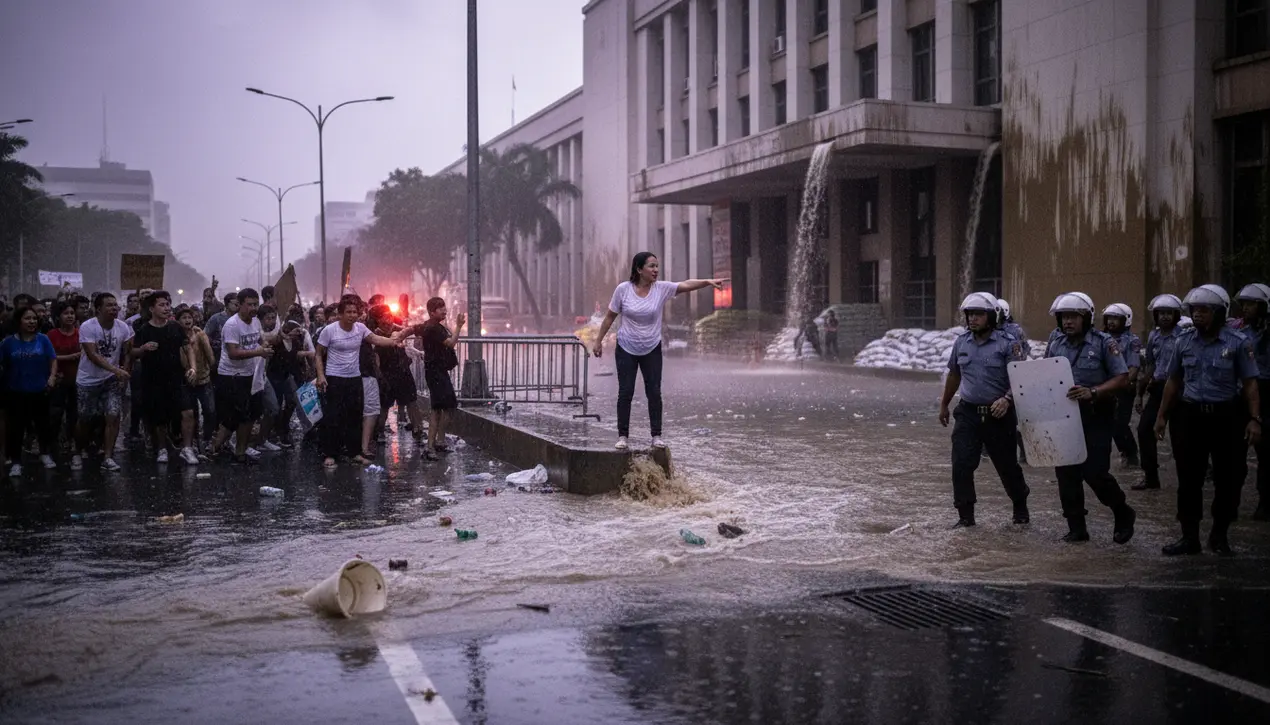
Politicsgovernments & cabinetsScandals and Resignations
Top Philippine Officials Quit Over Flood Control Scandal
OL
Oliver Scott
3 hours ago7 min read
The abrupt resignations of Philippine President Ferdinand Marcos Jnr’s Executive Secretary Lucas Bersamin and Budget Secretary Amenah Pangandaman on Monday represent more than mere cabinet reshuffling; they signal a critical erosion of institutional stability at the highest levels of government, directly triggered by a metastasizing flood control corruption scandal. This political earthquake, catalyzed by allegations from fugitive ex-lawmaker and former Marcos ally Zaldy Co, has unleashed mass protests that began Sunday, transforming Manila's streets into a theater of public outrage and placing the Marcos administration under a level of pressure it has not faced since taking office.The scandal, centering on the alleged misappropriation of funds earmarked for vital flood infrastructure in a nation perennially besieged by typhoons, strikes at the heart of public trust, exposing a vulnerability far more dangerous than seasonal floods: a systemic failure of governance. From a political risk perspective, this event follows a classic pattern of scandal escalation—initial allegations, the emergence of a seemingly credible accuser with insider knowledge, followed by high-profile departures meant to staunch the bleeding of political capital.The involvement of Co, a figure with his own complex history, adds a layer of deniability for the administration but also amplifies the scandal's narrative, creating a 'he-said, they-said' dynamic that is notoriously difficult to manage. The immediate risk scenario involves a protracted political crisis, with opposition figures likely to seize upon this momentum, potentially leading to congressional inquiries that could paralyze the legislative agenda.A medium-term consequence is the chilling effect on foreign direct investment, as international partners recalibrate their risk assessments of the Philippines, weighing political instability and corruption perceptions against economic potential. Historically, we can look to similar infrastructure-related scandals in other Southeast Asian nations, where such crises often lead not to a single downfall but to a gradual decay of the ruling coalition's authority, creating openings for both internal factionalism and external challengers.The strategic miscalculation here for the Marcos administration would be to treat this as a simple public relations problem; it is a fundamental crisis of credibility that demands more than sacrificial resignations. It requires a transparent, independent investigation—a move fraught with its own perils, as it could uncover even more damaging connections.The ongoing protests are a key indicator to monitor; their scale and duration will be the truest barometer of public sentiment and will determine whether this scandal remains contained within the halls of power or spills over into a broader movement demanding systemic accountability. The administration's next moves—whether it opts for a defiant stance, a full-throated reform pledge, or a quiet suppression of dissent—will define its tenure and either restore a measure of stability or mark the beginning of a much steeper decline.
#lead focus news
#Philippines
#Ferdinand Marcos
#cabinet resignations
#corruption scandal
#flood control
#protests
Stay Informed. Act Smarter.
Get weekly highlights, major headlines, and expert insights — then put your knowledge to work in our live prediction markets.
Comments
Loading comments...
© 2025 Outpoll Service LTD. All rights reserved.